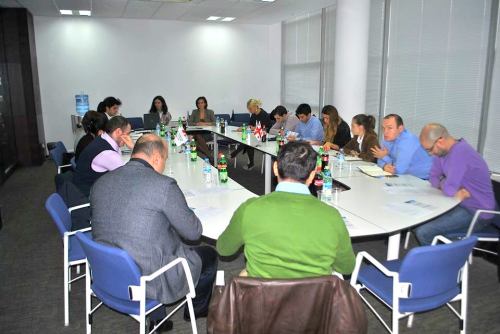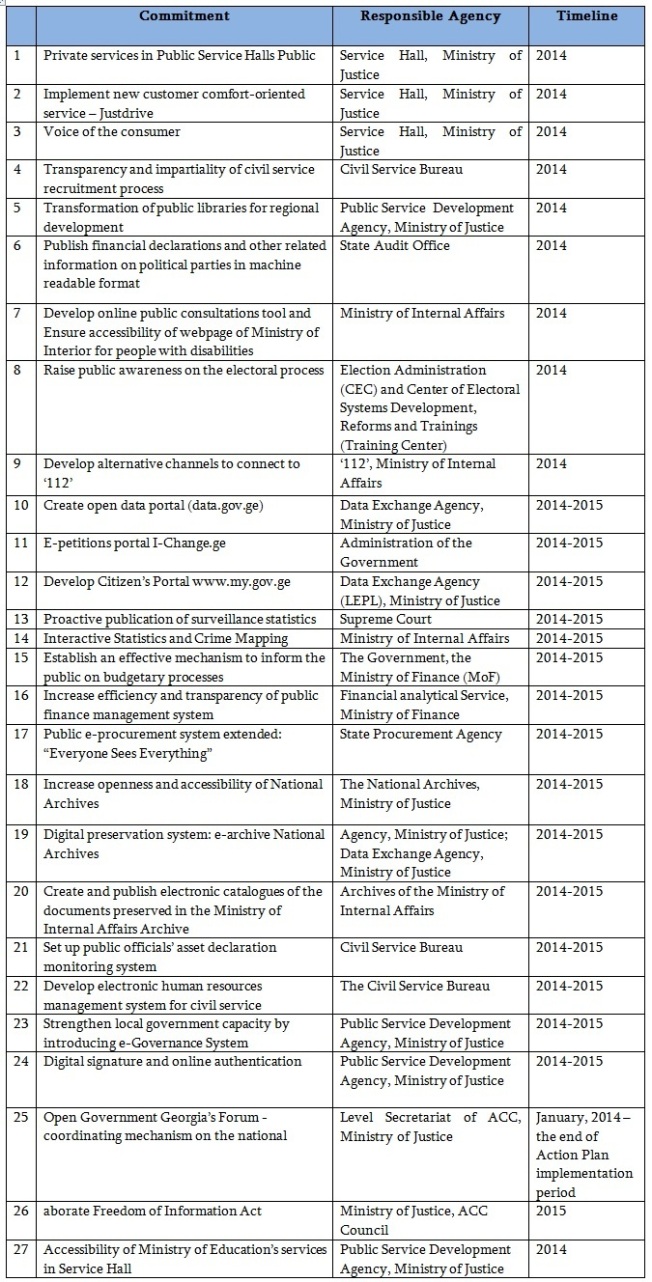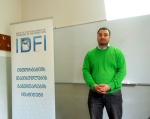Institute for Development of Freedom of Information (IDFI) conducted another workshop with students about Open Government Partnership (OGP) on October 4th, 2014. Students of different Universities attended the meeting, held at the Conference Hall of In-Depth Reporting and Advocacy Center. The workshop was provided in the framework of the USAID Good Governance in Georgia Program (G-3) supported project.
They had been participated in the trainings held within the framework of IDFI project “Enhancing E-skills among Young People”. The goals of these trainings were to raise awareness about E-participation and improve practical skills.
It should also be noted that the students has a chance to observe government activities and write blog posts based on their monitoring results. The workshop about OGP was another platform for analyzing Government activities.
During the workshop Giorgi Kldiashvili, the director of IDFI and co-chairman of Open Government Georgia Forum emphasized the importance, goals and challenges of the partnership. He explained to them what kind of commitments has Georgia taken and which state agencies are responsible for implementing these commitments.
Giorgi Kldiashvili explained how OGP works and what are the discussion topics in the framework of regional meetings and annual summits. Giorgi also showed videos, which described OGP activities and achievements throughout a year.
Students concern was about the mechanism OGP have to monitor action plan’s implementation, what can be the result if a country does not accomplish its commitments. Giorgi Kldiashvili mentioned that joining OGP is not obligation, it is just a state will, and countries take commitments themselves. Therefore, implementation is country’s prestige. Besides, Giorgi Kldiashvili mentioned that when country joins OGP, it must meet some requirements, if country does not fulfill them the exclusion from the partnership might be set in agenda,
The director of IDFI said that OGP’s goal is to develop citizens’ life; therefore, civil society should be involved in monitoring of commitment implementation process.
Participants of the workshop discussed how can they spread more information about OGP to increase engagement of people in these activities.
Giorgi Kldiashvili reviewed 27 commitments, which should be implemented by 16 public institutions the framework of National Action Plan 2014-2015.

























